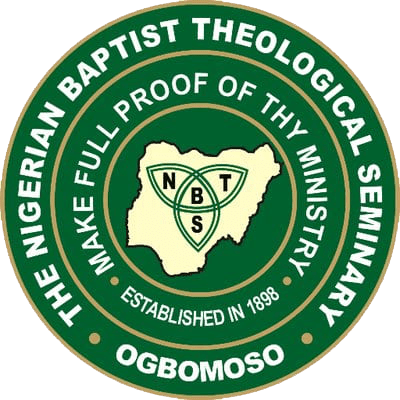
Participation in the music culture of local churches in Nigeria is all-encompassing. It takes care of all activities involved in the music-making of each church and also emphasizes the enlistment of choir members, which include the vocalists and instrumentalists. It also engages the determination and selection of the leadership of the music ministry of each church. Furthermore, the commitment and effectiveness of the personnel involved are periodically assessed, after which they are either retained till a given time or replaced by other persons. Actually, the duration that each officer spends in occupying a position is usually vividly spelt out in the Constitution of each choir. However, the aforementioned issues, and recruitment into leadership depend on the guiding rules of the music team, as well as the Pastor and the congregation.
Music Leadership
There is no strict rule on the choice of leadership in Nigerian churches, except that, almost every church always emphasizes the essence of regeneration, growth and spiritual maturity. This is expected at least to a reasonable extent, for participation in the team; and more importantly for leadership. Mainly, the commonest officers to be elected include: the Secretary, Treasurer/Financial Secretary, Whip/Disciplinarian, Band leader, Social/Welfare, and Prayer coordinator, among others. But the most paramount is the Leadership which varies from Choirmaster/Choir mistress, Music Director to Music Minister/Pastor or Worship Pastor. The Choirmaster or mistress may not necessarily be equipped professionally, except that many of them are musically talented. The Music Directors for the churches that use the term are usually appointed among church musicians, who did not obtain theological education; rather, who attended secular tertiary institutions and had any form of musical degree. This may be from any College of Education, Polytechnics, University, or Music School. Some churches call Music Pastors or Music/Worship Pastors who are professionally proficient from recognized theological institutions like the Nigerian Baptist Theological Seminary, Ogbomoso.
The issue of concern is that the experience that is expected in the place of corporate worship, especially ineffective leadership of church music is not always gotten in churches, where a call is not being extended to music ministers, who are wholistically equipped to handling and giving what it takes in this regard. The theological education that the Seminary provides equips the trainees with that, which effectively prepare them for the administration of the music ministry of the churches, rather than just recruiting persons that are limited to musicianship. The complaint from some Nigerian churches especially Baptist denominations is majorly financial constraint. They complain that the church does not have enough funds to take care of the personnel involved. Therefore, they opt for unskilled, semiskilled or skilled but without theological background. It is recommended that churches look into the criticality of this issue, and resolve on how worship music would be better enhanced, and congregational singing made more encouraging.
Contributed by Victoria O. Ayano.
Antiphonal Singing
Antiphonal singing is a deeply rooted practice in Northern Nigerian worship services, characterized by its call-and-response format. This method not only enriches the musical dimension of worship but also plays a crucial role in community and cultural expression.
Key Aspects of Antiphonal Singing include:
Community Engagement
Antiphonal singing fosters a strong sense of community within congregations. By dividing the congregation into groups—often a choir or a leader on one side and the general congregation on the other—participants are encouraged to listen, respond, and contribute actively to the worship experience. This interaction creates a lively atmosphere where worshipers feel empowered to express their faith collectively. The call-and-response format allows individuals to participate, regardless of their musical background, making worship more inclusive and vibrant. Additionally, this engagement enhances unity, as congregants come together to create a harmonious worship environment.
Reflection of Cultural Heritage
Northern Nigeria is home to a variety of ethnic groups, each with its unique musical heritage. Antiphonal singing allows for the incorporation of local rhythms, languages, and melodies, making worship deeply relevant and resonant. This practice honors the cultural backgrounds of worshipers, strengthening their connection to both their faith and heritage. Many songs used in antiphonal singing are derived from traditional folk music, further blending spiritual and cultural experiences and ensuring that worship reflects the diversity of the community.
Spiritual Expression
The emotive aspect of antiphonal singing allows for a powerful expression of spiritual devotion. As congregants alternate in singing, their voices create a rich tapestry of sound that enhances the worship atmosphere. The back-and-forth nature of this format fosters a robust shared experience, allowing participants to feel a deep emotional connection not only with the music but also with one another. This communal experience often leads to heightened spiritual moments, where individuals may experience a sense of unity with God and community, deepening their worship experience.
Teaching Tool
Antiphonal singing serves as an effective pedagogical method within the church setting. The structure of call and response helps congregants, especially those who may struggle with literacy or memorization, to learn songs and biblical teachings more easily. Leaders can introduce scriptural themes or truths through song, and the responsive nature allows congregants to internalize and recall these teachings effectively. This method reinforces not just the lyrics but also the messages behind them, creating a memorable and impactful learning experience.
Antiphonal singing in Northern Nigerian worship services significantly enriches the worship experience by fostering unity, celebrating cultural identity, and enhancing spiritual engagement. It allows individuals to encounter and express their faith collectively, linking generations and traditions in meaningful ways. As congregants participate in this dynamic form of worship, they build relationships with one another, their culture, and their faith, creating a holistic environment for spiritual growth and community cohesion. This time-honored practice continues to play a pivotal role in shaping the worship culture of churches in Northern Nigeria, ensuring that faith remains both vibrant and relevant in the lives of its adherents.
Contributed by Joshua Yero Kwasau.

